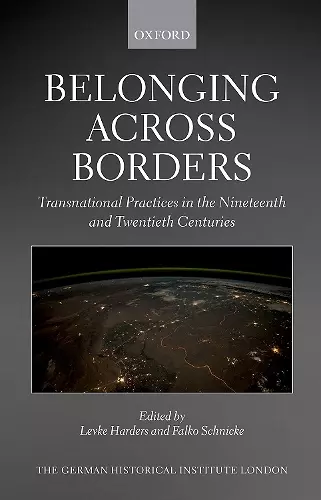Belonging across Borders
Transnational Practices in the Nineteenth and Twentieth Centuries
Falko Schnicke editor Levke Harders editor
Format:Hardback
Publisher:Oxford University Press
Published:24th Oct '22
Currently unavailable, and unfortunately no date known when it will be back

Borders and belonging are of immense importance as borders are being (re)defined, strengthened, or weakened all around the globe. Brexit, the proposed wall between the USA and Mexico, the India-Pakistan border-the drawing of social and spatial boundaries is at the heart of many current debates, as is the question of what it means to 'belong' somewhere. Unlike the main body of literature, Belonging Across Borders argues that processes which occurred before and beyond the nation state also influence inclusion and exclusion. Focusing on practices and historical subjects, it re-evaluates historical sources and goes beyond the existing research to look at the interplay between different reference points (empire, nation, and region) and at individuals, exploring borders as both territorial and social boundaries. This approach is in line with recent calls to expand border studies by adding a historical perspective and using new methodologies and theories. Geographers and anthropologists have been studying this topic for decades and have produced a range of inspiring research. However, a more historical perspective is also needed: first, to emphasize the existence of different types of borders, bordering, and border actors through historical case studies; second, to underscore the historical specificity of border practices; and third, to highlight their dependence on historical contexts. Belonging Across Borders breaks new ground by applying the concept of belonging to historical studies on borders, empires, nations, and regions. It also links borders and belonging to individual historical actors and their practices, not just to institutions or social groups.
ISBN: 9780192867490
Dimensions: 223mm x 147mm x 30mm
Weight: 706g
360 pages